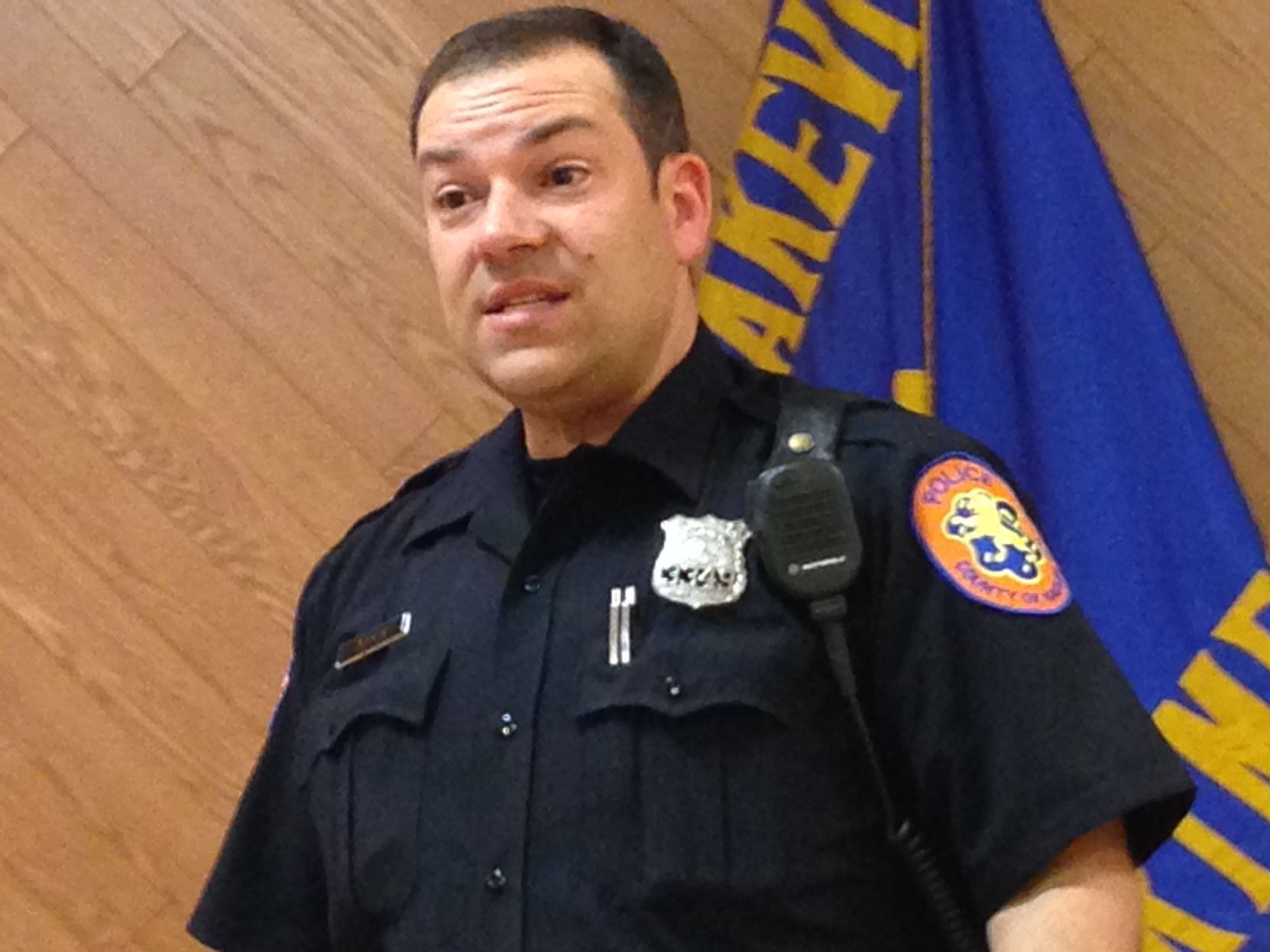Nassau County police are hitting the streets to make sure drivers hit the brakes in North New Hyde Park.
Cops have written 131 tickets since January in a cluster of residential streets where drivers often speed and ignore stop signs, police officer Todd Atkin said.
“A lot of people are walking dogs, kids going by, and I say, ‘Look at what you just missed,’” said Atkin, one of the police department’s 16 recently reinstated Problem-Oriented Police officers. “You’re going to run these people over.”
Atkin said he started watching four streets off HIllside Avenue and New Hyde Park Road after Lakeville Estates Civic Association President Bill Cutrone complained earlier this year about cars cutting from one thoroughfare to another.
Most of the violations on Evans Street, Lawrence Street, Celler Avenue and Bregman Avenue happen during the evening rush hour, between 5:20 and 6:10 p.m., he said.
Atkin has seen violations decline since he started the enforcement effort, he said.
“With Twitter and Facebook and Snapchat, people get the word out pretty quick,” Atkin said. “And if somebody gets a ticket, they tell 30 people, ‘Don’t drive through here, don’t do this, don’t do that.’”
Higher population density and a nearby central shopping center drive up the number of violations in North New Hyde Park, Atkin said. The area is among 79 trouble spots in the 3rd Police Precinct where cops are trying to crack down on traffic violations, he said.
Speeders and stop-sign violators can pose a real danger to the many seniors and young children who live in the neighborhood, Atkin said.
Cutrone said he complained about the speeders after three families on Celler Avenue and Evans Street did not renew their civic association memberships.
When he asked what he could do to bring them back, they told him about the traffic trouble and he pledged to get the police on it, he said. They ended up rejoining the civic group, he said.
“They’ve been fantastic as far as enforcement,” Cutrone said of the police.
Cutrone has noticed less traffic going through the area since police started their presence, he said.
These are the kinds of problems Atkin and other problem-oriented police, or POP, officers have worked to address since the popular community policing program was reinstated in December, he said.
While patrol officers jump from crime to crime, POP officers know their communities and can focus more on residents’ concerns, Atkin said.
“This isn’t just about music or loud noises,” he said. “This is something where people’s lives could be put in jeopardy.



